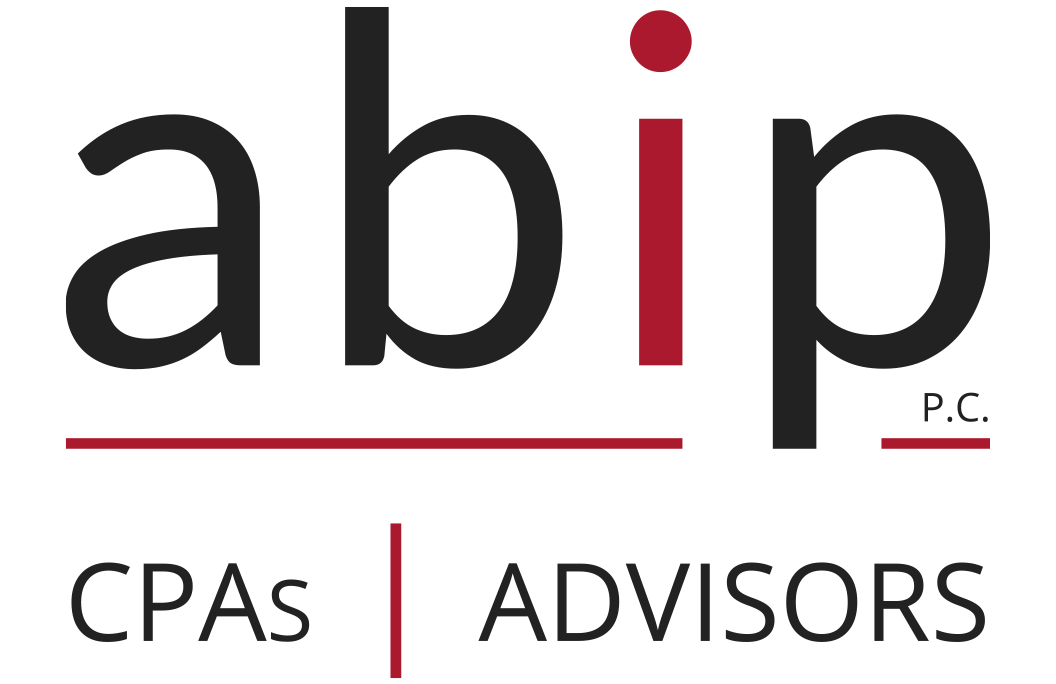Tax Changes Related to Health Care Reform
 2014 has brought a few changes and alterations to taxes, especially as it relates to health care reforms. Indeed, the Affordable Care Act has prompted a few significant changes.
2014 has brought a few changes and alterations to taxes, especially as it relates to health care reforms. Indeed, the Affordable Care Act has prompted a few significant changes.
Additionally, a host of tax provisions created during the recession expired at the end of last year. Some were scheduled to sunset at the end of 2012, but were extended. Their reinstatement for 2014 is left to Congress.
The 2013 federal government shutdown affected the start of the 2014 tax season.
– On January 13, the IRS began accepting Form 1120/1120S, Form 1065, and payroll and excise tax returns (Form 720, Form 940, Form 941 and Form 2290) from corporations and partnerships.
– On January 31, the IRS will begin accepting Form 1040 and Form 1041 from individuals, unincorporated small businesses, and estates and trusts. 1
Reminder: You should consult with a qualified tax or financial professional before making short-term or long-term changes to your tax or financial strategy.
Following are 6 changes that you should be aware of.
1) U.S. citizens & legal residents will face a tax penalty if they go without health insurance coverage for 2014 (with some exceptions).
This 2014 penalty is minor, and its impact will be felt in 2015.
This year, American citizens and legal U.S. residents who can afford health care coverage but elect not to buy it will be hit with a tax penalty called the individual shared responsibility payment. No one will have to make this payment until April 2015. 2
For 2014, the penalty for uninsured adults is $95 per person or 1% of your yearly income, whichever is greater. The penalty for uninsured children in your household is $47.50. The total household penalty is capped at $285 in 2014 (or 300% of the individual adult penalty). 2, 3
Next year, the adult penalty rises to $325 per person or 2.0% of yearly income; it is supposed to max out at $695/2.5% in 2016. 2, 3
If you are a very wealthy individual who doesn’t buy health insurance in 2014, you get something of a break when it comes to the percentage-of-income penalty, which is calculated using your modified adjusted gross income (MAGI): the maximum individual penalty cannot surpass the national average annual premium for a bronze plan. That amount will be calculated this year, but will likely be in the vicinity of $4,500-5,000. 3
How will the federal government know if you lack health care coverage? You will let them know as you file your federal taxes next year. The plan is for taxpayers to send in a supplemental form with their 1040s, indicating whether or not they were insured for 2014.
If you weren’t insured for 2014, the IRS will deduct the penalty amount from your federal tax refund. If you don’t get a federal tax refund for TY 2014, then the IRS will reduce your TY 2015 refund by that amount, or your TY 2016 refund if you don’t get a TY 2015 refund, and so forth. 2, 3
At this juncture, it appears this is the only way the IRS can assess the penalty. It can’t put a lien on the money to collect payment. 4
Could you be exempt from the penalty? To see if you are, visit healthcare.gov/exemptions. The list of exemptions is quite long. 2
A reminder: if you are still uninsured and want to buy health insurance for 2014, you must do so before April. March 31 is the deadline for this year’s open enrollment period. If you miss that deadline, you will have to wait until October 7 for the chance to buy coverage. 2, 4
2) Some enrollees in qualified health plans offered through the Health Insurance Marketplace will get tax credits.
These rules apply to 2014 & subsequent tax years.
If you enroll in a qualified health plan through the federal health insurance exchange or a state health insurance exchange, you might be eligible for the Advance Premium Tax Credit – a credit that can be applied to reduce the cost of monthly health insurance premiums.
You can choose how much of the advance credit payments you want to apply to your premiums per month. If your advance payments for a year exceed the amount of the credit you are given for the year, you are looking at a refund. If they exceed the cost of the premiums, you will have to repay the excess payments made on your behalf when you file your 2014 federal taxes.
Generally speaking, you qualify for a credit if your household income falls into one of these per-household-size ranges, which were 2013 estimates and may be adjusted slightly north this year:
- $11,490-45,960 for individuals
- $15,510-62,040 for a family of 2
- $19,530-78,120 for a family of 3
- $23,550-94,200 for a family of 4
- $27,570-110,280 for a family of 5
- $31,590-126,360 for a family of 6
- $35,610-142,440 for a family of 7
- $39,630-158,520 for a family of 8
Consumers learned whether or not they were eligible for a credit at the website of the health insurance exchange applicable to their state (or by speaking to its personnel via phone). 5
By the way, if you have enrolled in a qualified health plan through a health insurance exchange, the reimbursement or direct payment of the plan premiums counts as a qualified benefit under a cafeteria plan in 2014 and years that follow. 6
3) It is now possible to carry over some FSA funds to the next year.
An exception to the use-it-or-lose-it rule has been created.
If you participate in an employer-sponsored flexible spending account (FSA) plan, you know the drill: use the money in the FSA for qualifying medical expenses by the end of the plan year, because it will be gone next year.
IRS Notice 2013-71 creates a new wrinkle. Employers sponsoring FSA programs may now allow as much as $500 in unused FSA funds to be carried over to a subsequent year by a plan participant. Whatever amount is carried over doesn’t cut into the $2,500 contribution limit for the subsequent year.
Some FSA plans have allowed participants an extra 2½ months after the end of a plan year to spend their FSA money. The new carryover rule renders this “grace period” obsolete. 7
4) Large-employer reporting & responsibility requirements of the Affordable Care Act will not take effect until January 1, 2015.
Big businesses & insurers get a 1-year reprieve from these mandates.
Much has been written about this already, but here’s a brief recap. Most large employers with at least 50 full-time employees would have been required to provide basic health care coverage to FTEs or pay penalties starting in 2014, but this requirement has been delayed until January 1, 2015.
There was also an information reporting mandate scheduled for 2014, by which these employers (and by extension, insurers) would have needed to supply details of the coverage to the IRS and individuals. This, too, has been delayed until January 1, 2015.
There was no 1-year postponement of the W-2 reporting requirements linked to the ACA; these are already in effect. 7
5) A new excise tax is hitting insurers.
There will almost certainly be consumer impact.
The federal government is now charging health insurance providers an aggregate flat fee each year. The fee – estimated to start at $8 billion for 2014, estimated to climb to $14.3 billion by 2018 – will be broken down per health care provider based on premium trend. The Congressional Budget Office thinks the tariff will be “largely passed through to consumers in the form of higher premiums,” and larger deductibles may result as well. 7, 8
6) Owners of MSAs & HSAs should note new deductible and out-of-pocket expenses requirements for qualifying HDHPs.
The adjustments are small, but worth noting.
If you have a Health Savings Account (HSA) or Medical Savings Account (MSA), you must also be enrolled in a high deductible health plan (HDHP). You should be aware of the following requirements with regard to deductible limits on HDHPs this year. 9
| MSAs | Annual Deductible | Annual Limit, Out-of-Pocket Expenses |
| Self-only coverage | $2,200 – $3,250 | $4,350 |
| Family coverage | $4,350 – $6,550 | $8,000 |
| HSAs | Annual Deductible | Annual Limit, Out-of-Pocket Expenses |
| Self-only coverage | $1,250 or greater | $6,350 |
| Family coverage | $2,500 or greater | $12,700 |
If you have any concerns or questions about these IRS 2014 Tax changes, contact ABIP today. One of our team members will be able to assist you.
To learn more about Tax Changes Affecting Businesses, read the second part of our article series about IRS 2014 Tax Changes.
This Special Report is not intended as a guide for the preparation of tax returns. The information contained herein is general in nature and is not intended to be, and should not be construed as, legal, accounting or tax advice or opinion. No information herein was intended or written to be used by readers for the purpose of avoiding penalties that may be imposed under the Internal Revenue Code or applicable state or local tax law provisions. Readers are cautioned that this material may not be applicable to, or suitable for, their specific circumstances or needs, and may require consideration of non-tax and other tax factors if any action is to be contemplated. Readers are encouraged to consult with professional advisors for advice concerning specific matters before making any decision. Both ABIP and MarketingLibrary.Net, Inc. disclaims any responsibility for positions taken by taxpayers in their individual cases or for any misunderstanding on the part of readers. Neither ABIP nor MarketingLibrary.Net, Inc. assume any obligation to inform readers of any changes in tax laws or other factors that could affect the information contained herein.
1. IRS Newsroom
3. Lankford, Kimberly. “The Lowdown on the Health Insurance Penalty”
4. Kliff, Sarah and Ezra “Everything you need to know about life under Obamacare”
6. “Federal Income Tax Changes in 2014”
7. Humphrey, Scott. “Significant Tax Changes for 2013 & 2014”
8. AHIP Coverage. “IRS Releases Final Rule on the Health Insurance Tax”





